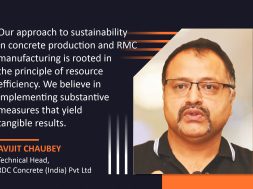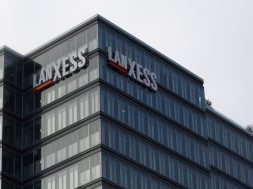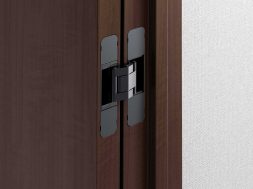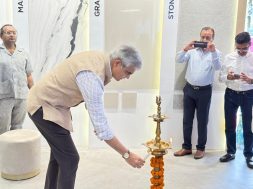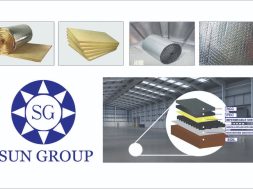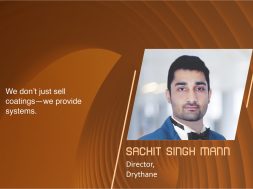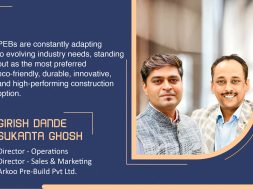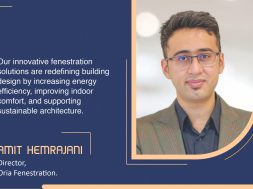Sustainability and operational efficiency through innovative RMC products
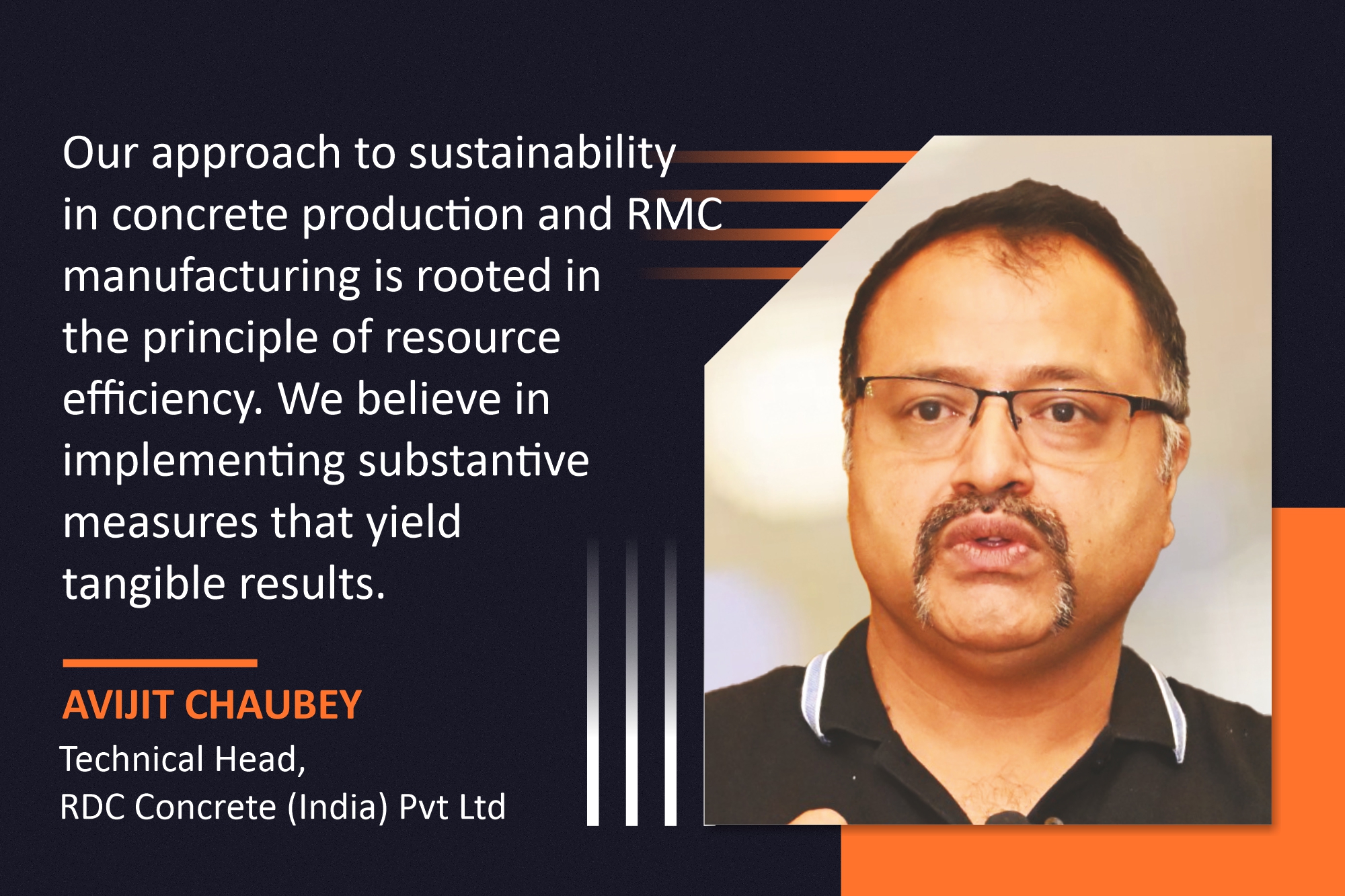
This discussion focuses on the emerging trends in the concrete and RMC industry and how sustainability can be ascertained alongside ensuring high performance.
What technological advancements in concrete production and RMC have improved efficiency and quality?
Several technological advancements have occurred in concrete production and the ready-mix concrete (RMC) domain in the past two decades, significantly improving efficiency and quality. These include implementation of automated batching systems for precise weighing and mixing of raw materials; development of digital management systems for invoicing, dispatching, and inventory control; integration of building information modelling (BIM); utilisation of AI algorithms for optimising delivery routes and predicting transit mixer arrival times; deployment of Internet of Things (IoT) sensors in transit mixers to monitor relevant parameters in real-time, introduction of high-performance admixtures and supplementary cementitious materials (SCMs); implementation of GPS tracking systems for fleet management; introduction of non-destructive testing methods; and adoption of energy-efficient equipment and processes in production plants to lower carbon footprint.
These advancements have collectively improved product quality, increased operational efficiency, reduced environmental impact, and enhanced customer satisfaction in the concrete and RMC industry. The sector continues to evolve, with ongoing research into nanotechnology, smart concrete, and 3D printing applications promising further innovations in the near future.
How do your products enhance the strength and durability of concrete in construction projects?
We have ensured concrete strength and durability through our “ultrafine minerals”, derived from fly ash, GGBS, and micro silica, which are almost 10 times finer than cement particles. These ultrafine materials offer several benefits, including improved strength by filling microvoids in concrete, enhanced durability through reduced permeability, better workability for easier placement, cost-effectiveness, and sustainability by utilising industrial by-products.
Our ultrafine minerals and admixtures represent a paradigm shift in concrete technology. They offer customisable solutions for various construction needs while contributing to more resilient and sustainable infrastructure development.
Can you share a few examples of projects where the use of RMC has accelerated construction timelines?
Some notable examples where the use of RMC has accelerated construction timelines include rapid road repairs, where fast-setting concrete has allowed traffic to resume within 15 minutes of application; reduced slab reconstruction cycles while using “Jetsetcrete” in high-rise buildings; shortened production cycles in precast manufacturing; faster strength gain in infrastructure projects; and faster equipment installation enabled by high-early-strength concrete in industrial facilities.
How does your company approach sustainability in concrete production and RMC manufacturing?
True sustainability aligns with economic benefits, driving us to innovate and optimise our processes. Our strategy encompasses several key areas: resource conservation, cement replacement, water management, energy efficiency, waste reduction, emissions control, and performance metrics monitoring.
What measures are in place to reduce carbon footprint and promote eco-friendly practices in concrete construction?
The use of ultrafine minerals as partial cement replacements has significantly helped lower CO2 emissions associated with cement production. Our focus on resource efficiency extends to optimising water and energy consumption in our production processes and minimising concrete wastage. Our innovative products, like rapid-setting concrete for road repairs and early-strength formulations that accelerate construction timelines, have indirectly contributed to reduced environmental impact.
What certifications or standards does your RMC adhere to in terms of environmental sustainability?
We regularly assess our practices against evolving industry standards and emerging best practices to ensure we remain at the forefront of eco-friendly RMC manufacturing. This approach allows us to contribute meaningfully to environmental sustainability while maintaining the high quality and performance that our customers expect.
For more details, visit: https://www.rdc.in/
Cookie Consent
We use cookies to personalize your experience. By continuing to visit this website you agree to our Terms & Conditions, Privacy Policy and Cookie Policy.
